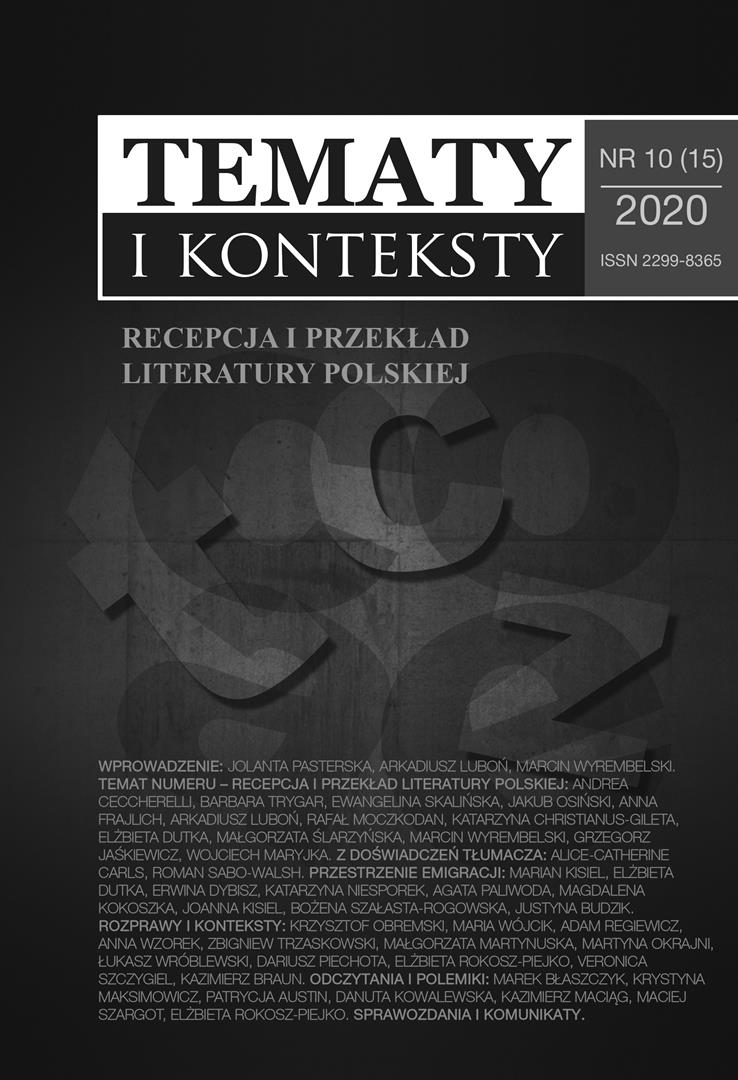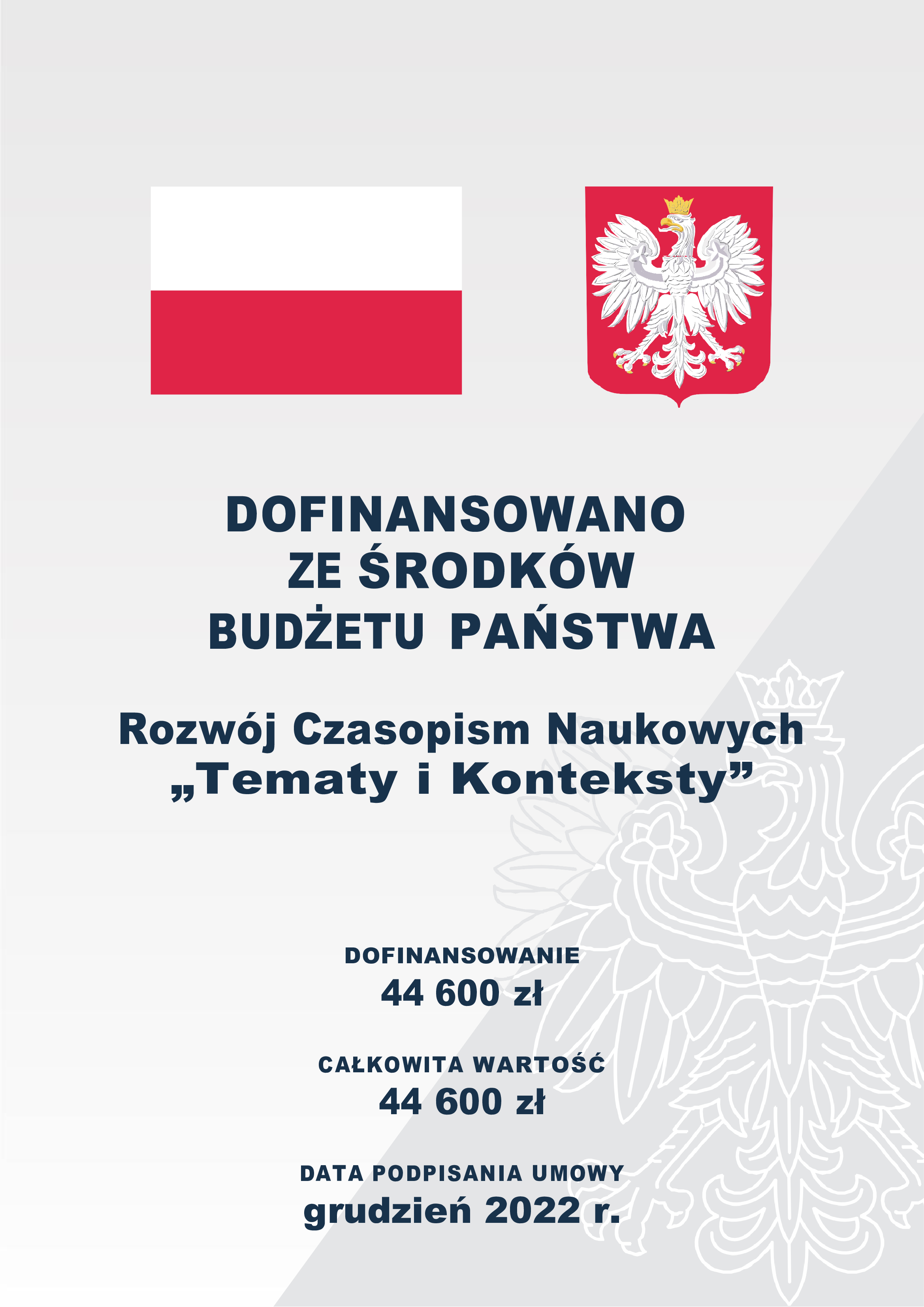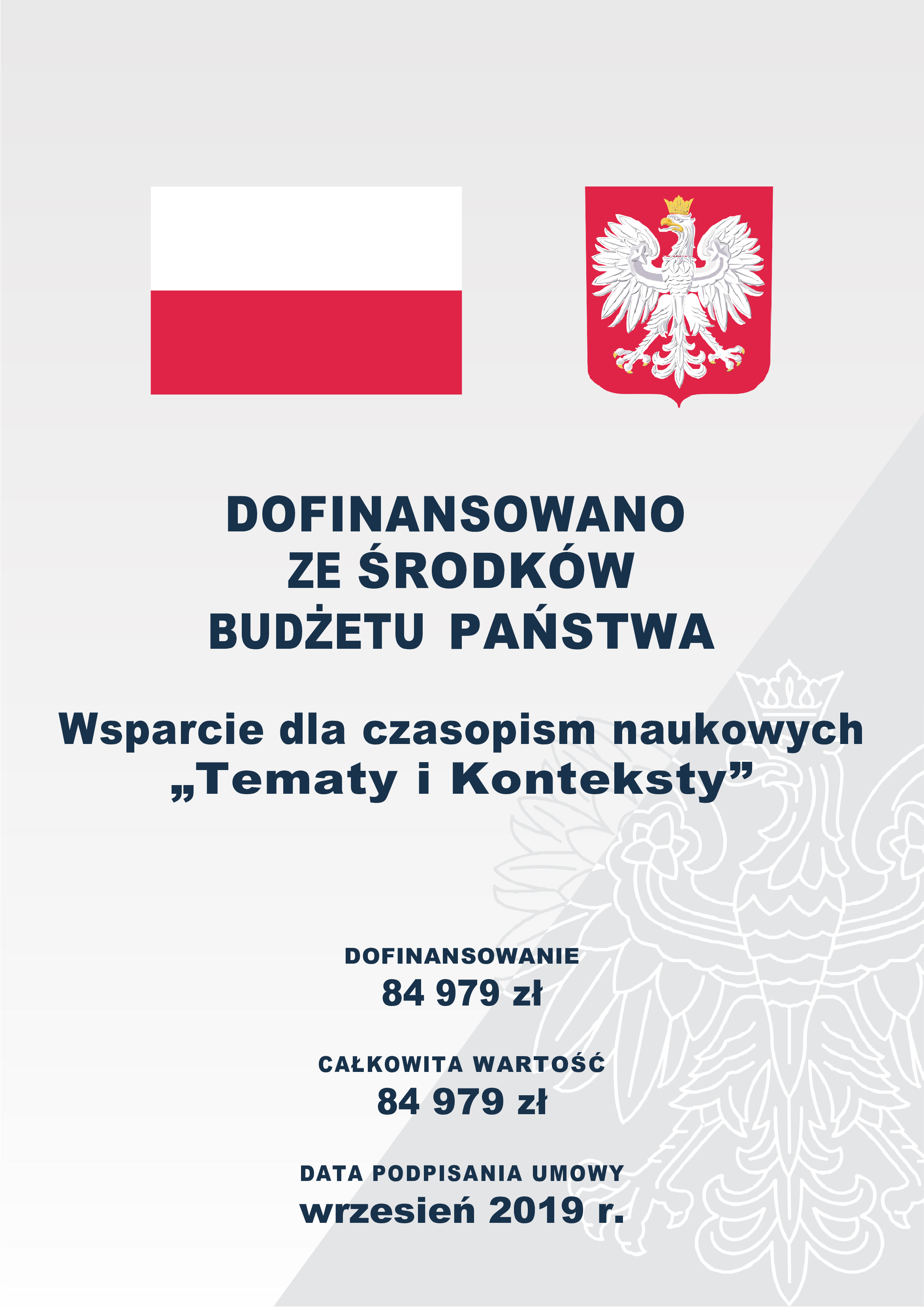The Spoons of Menas. On the Poem Hagia Sophia by Andrzej Busza
DOI:
https://doi.org/10.15584/tik.2020.23Keywords:
Andrzej Busza, Byzantium, Hagia Sophia,, existence, doubt, wątpliwośćAbstract
An outstanding poem, “Hagia Sophia” by Andrzej Busza uses the historical context of early medieval Byzantium in order to describe the universal situation of a human being that confronts the ideas of God and divinity. While reading this poem, the deeper meaning of its reality and symbols putting forward the byzantine setting can be traced; moreover, such a process makes it possible to attempt at deciphering the mysterious inscriptions engraved on the silver spoons of Menas, the protagonist of this poem, with regard to the tragedy of human faith and doubt, an issue that has never lost its significance. In fact, this poem is a bitter and idiosyncratic meditation on the uncertainty embedded in human existence and the doubtful usefulness of the gifts of the Holy Spirit.
Downloads
References
Biblia Jerozolimska, Poznań 2006.
Busza A., Hagia Sophia, w: tegoż, Glosy i refrakcje, przeł. B. Czaykowski, Berlin–Toronto 2001.
Cioran E., Sylogizmy goryczy, przeł. I. Kania, Warszawa 2009.
Evans J. A., Justynian i imperium bizantyńskie, tłum. B. Godzińska, Warszawa 2006.
Forstner D. OSB, Świat symboliki chrześcijańskiej, przeł. i oprac. W. Zakrzewska, P. Pachciarek, R. Turzyński, Warszawa 1990.
Herrin J., Bizancjum. Niezwykłe dziedzictwo średniowiecznego imperium, przeł. N. Radomski, Poznań 2009.
Krawczuk A., Poczet cesarzy bizantyjskich, Warszawa 2006.
Lécuru L., Siedem darów Ducha Świętego, tłum. M. Foss-Kita, Kraków 2009.
Lurker M., Słownik obrazów i symboli biblijnych, tłum. K. Romaniuk, Poznań 1989.
Miłosz C., Przygody poezji nowoczesnej, w: tegoż, Prywatne obowiązki, Olsztyn 1990.
Pasterski J., Inne wyzwania. Poezja Bohdana Czaykowskiego i Andrzeja Buszy w perspektywie dwukulturowości, Rzeszów 2011.
Stefanovic R., Zrozumieć Apokalipsę. Nowy komentarz, tłum. J. Trzeciak, Warszawa 2016.
Stern H., Sztuka bizantyńska, przeł. T. Mroczko, Warszawa 1975.
Downloads
Published
How to Cite
Issue
Section
License
Copyright (c) 2020 Tematy i Konteksty

This work is licensed under a Creative Commons Attribution-NonCommercial-NoDerivatives 4.0 International License.




